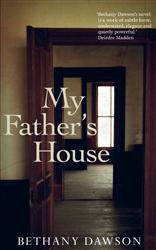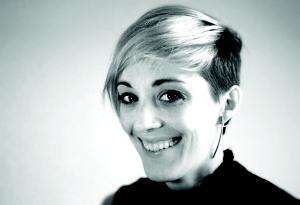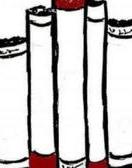Today’s post contains a guest piece from debut author Bethany Dawson with whom I first made contact via good old Twitter. I was given a copy of her novel My Father’s House (Liberties Press, 2013) by the publishers earlier this year, and upon reading it was very impressed by its literary quality.

An Evocative Image..
For those of you who haven’t read My Father’s House, the novel’s plot centres on Robbie Hanright’s return from Dublin to his family home in County Down when he learns of his father’s illness. Robbie turned his back on the family farm, his parents and two sisters to make a new life for himself a few years previously.
As the narrative unfolds we learn more about what he left behind and why he chose to do so. Time has moved on since Robbie fled to Dublin and things and people have changed back home so he has much to absorb and to reflect upon. Robbie meets faces from the past and has to come to terms with his actions. But will he learn from the past?
This is a deceptively quiet novel where the focus is upon relationships with family and friends. The reason I say ‘deceptively’ is because there is a huge depth of emotion conveyed within an ostensibly straightforward series of events. The effect builds throughout the novel to satisfying effect. The layers of the characters are gradually revealed and I found that the more I knew about them, the more I wanted to know. I don’t want to reveal too many of the plot details so I won’t tell you any more.
Bethany Dawson has written a piece especially for The Landing in which she discusses her characters and her readers’ responses to them:
Muddling through: characterisation in My Father’s House
I have found peoples’ response to the characters in My Father’s House very interesting. One reader said she finished the novel feeling sad that there hadn’t been a happier ending. Another said she wished the main character, Robbie, had just ‘grown a set’.
My fascination with people and how they relate to one another is the center from which my book flows. Several thousand words into my original manuscript I felt as though I knew my characters pretty well. By the end of the three years it took to complete the writing of the novel, I had spent far too much time with them.
Robbie is the kind of man I hoped would be better but always left me feeling slightly disappointed. His relationship with his father, John, is complex, and both their Northern Irish identity and the shadow of sickness intensify the difficulties they have connecting. I found it wonderfully challenging to write scenes with the two of them. The culture of sweeping things under the carpet means so little is actually said and at times I found the tension unbearable.
Robbie’s mother is a refreshing example of someone who took the opportunity to change. A few readers found her transformation from dowdy housewife to a woman with a young lover who keeps ostrich feathers on her dresser quite amusing.
I wanted readers to see their brothers, sisters, fathers, mothers and grandparents reflected in my characters. Although the story is a work of fiction, there are truths reflected in it with which most people can identify. In general, the characters muddle through a very difficult time and try, quite unsuccessfully at times, to work out how to relate to one another. By the final page of the novel some things are resolved but most are not, and in this way I hope I have been true to how the majority of real life stories come to an end.
BIO

Bethany Dawson
Bethany Dawson released her debut novel My Father’s House last month. She completed a Master of Philosophy in Creative Writing at Trinity College, Dublin in 2007. She works as the Assistant Editor of The Zimbabwean, an independent newspaper produced in the UK. She currently lives in Belfast, Northern Ireland with her husband and son, but has spent time living in both Zimbabwe and South Africa.
Bethany blogs at http://www.storiesbybethany.blogspot.ie/ and if you want to take a look at the Liberties Press website, she has recorded a promotional video for My Father’s House.
Many thanks to Bethany Dawson for contributing to The Landing
Photo credit: Carl Whinnery

